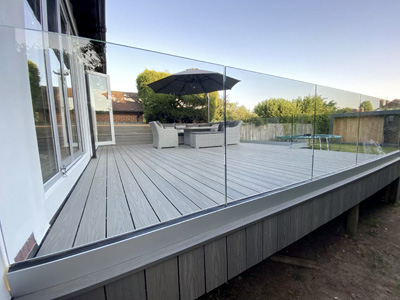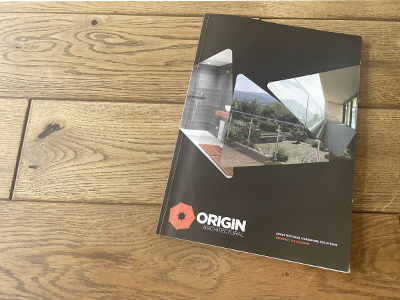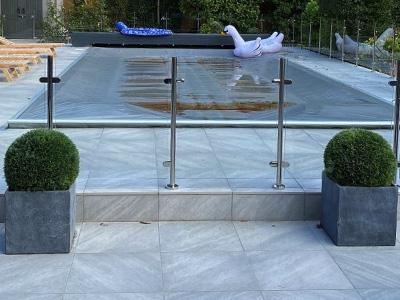How do Privacy Screens Work?
Glass architecture is beautiful. It lets the light flow into a property, creating a sense of airiness and space. Even in smaller rooms. But whether you live in a built-up area, or you’re in the countryside but your property is exposed, glass architecture carries one significant disadvantage: privacy. Or a lack thereof. Along with all of that natural lighting, glass frontages inevitably bring prying eyes. And that’s what privacy screens are for. But how do they work?
Understanding Privacy Screens
What is a privacy screen?
To start with the basics, a privacy screen is essentially a barrier to shield your property from anyone looking inside. They can take a whole range of forms, including planted frames and wooden panels. However, wooden privacy screens pretty much defeat the object of investing in a home with glass architecture. While glass privacy screens are designed to let the light flow in without attracting unwelcome eyes.
How do glass privacy screens work?
Privacy screens work in different ways, depending on what they are constructed from.
Obscured glass
Glass privacy screens are typically crafted from obscure glass. This is the term used to refer to any glass that obscures or distorts the view on the other side. Examples are satin glass, frosted glass, laminated glass with an opaque interlayer, and acid etched glass. It’s a popular choice because it lets the light penetrate while even the keenest of stares cannot. However, it carries the simple drawback that it can also limit your ability to see out of your home, so placement is key. It does also carry the additional benefit of acting as a screen from the wind.
Tinted glass
If maintaining your view is integral, you may also wish to consider toughened tinted glass for your privacy screen. The darkened glass will better reflect light, preventing outsiders from seeing in. While not totally effective at night, when you have lights on behind it, it can work well during the day.
Metal mesh
Created from metal sheets or woven wire mesh, these screens don’t provide complete privacy. However, they do partially obstruct the view, making it much more difficult for people to see in from street level. Their primary benefit is that they allow light and air to fully penetrate, while enabling anyone sitting level with the screen to see out.
Louvred panel
Just like louvred blinds, louvred panel privacy screens provide striated covering. When close to, it’s possible for homeowners to look right through their louvred privacy screens from the right angle. From a distance, however, the view is completely impenetrable. The beauty of louvred panels is that they are adjustable, so you can change the angle according to the direction of the wind – and the amount of privacy you require.
Privacy screens can be hugely beneficial in a range of scenarios. Whether you wish to protect a bedroom balcony or an outdoor entertaining area. If you choose well, you can aesthetically enhance your home and protect it against the weather, while ensuring your privacy. Making it a strong investment for any home with a glass frontage.
Are you interested in finding the right privacy screens for your home? Get in touch to find out how Origin Architectural can help.
Design Your Balustrade
Design your perfect Glass Balustrade today using our online Balustrade Designer and get an instant quote.
Request Your Catalogue
Download your free catalogue to help you choose the perfect balustrade solution for your project.
Got a Question?
Our friendly and experienced UK customer service team are on hand to help and answer any questions you may have via phone or email.




